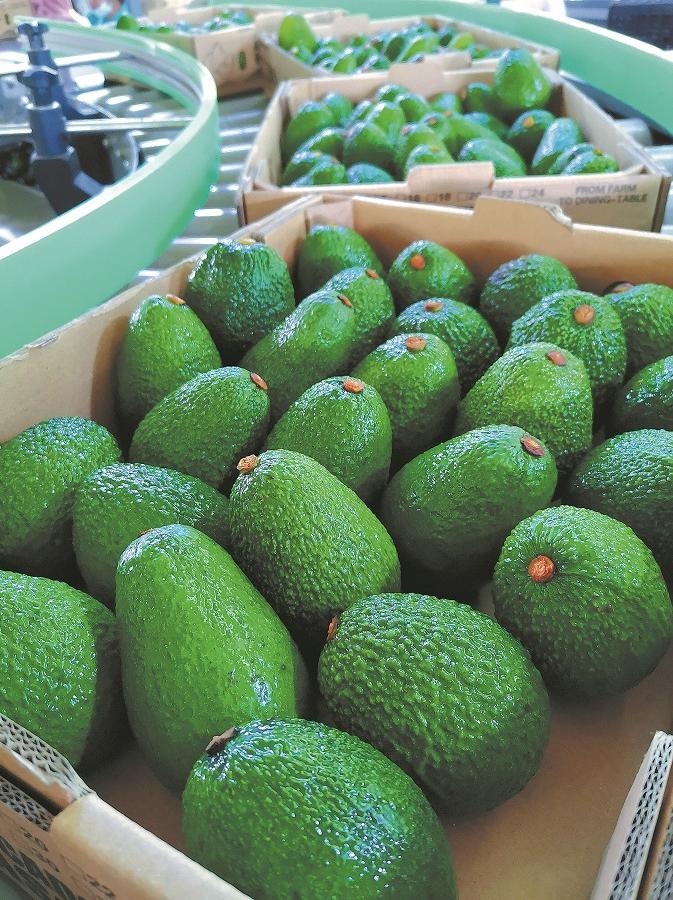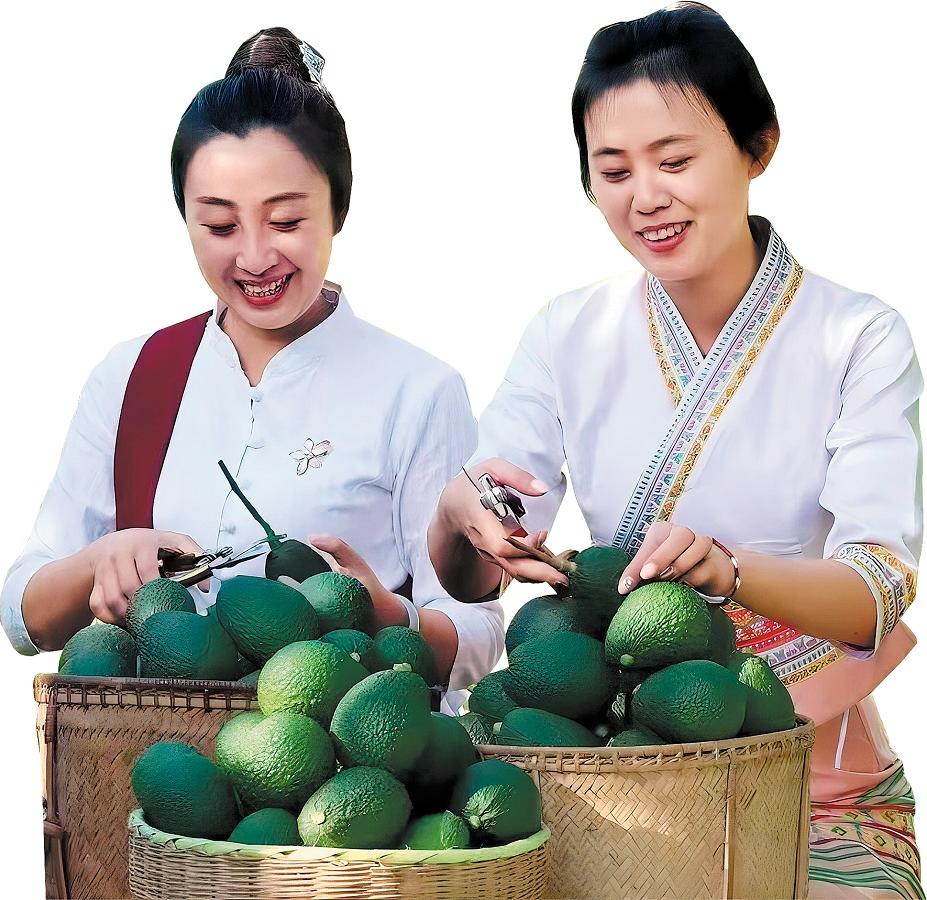Menglian in Yunnan province turns exotic superfruit into local specialty

Avocados are packed at a plantation in Menglian. [Photo provided to China Daily]
Sharing profits
The 334 collaboration model, developed by the local government and enterprises, is a profit-sharing mechanism where farmers contribute land for a 30 percent share, enterprises provide seedlings and technology for another 30 percent, and State-owned management companies, village cooperatives, and village collectives, hold the remaining 40 percent.
This model ensures that farmers get a share of the profits and guarantees a minimum income of 300 yuan per mu (0.06 hectares) of land during the initial three non-harvest years. It also means that the company and the village collective share the risks with the farmers.
Yang Hua, the Party Secretary of Mangxin town, was one of the first to promote avocado cultivation to farmers. "Compared with crops like corn and sugar cane, avocados offer higher economic returns," Yang said. The 334-collaboration model was also a crucial factor in convincing farmers to participate.
Zha Ke, persuaded by this model, decided to lease his 7 mu of land to the cooperative for avocado cultivation in 2016, despite never having seen or tasted an avocado. But his bold decision has since brought him and his family substantial income. "Last year, I earned 47,000 yuan in dividends from my land," he said.
In addition to dividends, Zha Ke earns 120 yuan a day working at an avocado orchard. "Overall, avocados have increased my annual income by about 50,000 yuan," he said.
As more villagers witnessed the benefits of avocado cultivation, participation grew.
"In our village group of 146 households, almost every one now grows avocados," said Zha Ke from Mangxin village.
"Even if they don't plant them in their fields, they have avocado trees growing in their yards or around their houses."
Transforming Menglian
Seventeen years ago, Qi Jiachu planted the first avocado seed in Menglian. Today, Menglian has transformed into the Avocado Town of China, producing about 80 percent of the country's avocados and replacing 15 percent of imported ones.
According to data from Chinese Customs, in 2023, China imported over 65,626 metric tons of avocados worth around $151 million from nine countries, including Peru, Chile, Kenya and Mexico. The top three provincial-level regions for avocado imports were Shanghai, Guangdong and Zhejiang.
The avocado industry in Menglian now supports 11,000 households and 35,000 people, more than a quarter of the county's population. Its avocado plantations cover 118,900 mu, which yield 19,500 tons of the fruit and generate around 680 million yuan in revenue last year.
Compared with imported avocados, domestic ones have an advantage due to their higher dry matter percentage, Qi said. As the dry matter percentage in an avocado increases, so does its oil content. More oil content results in a richer flavor.
As China's largest domestic avocado production area, Menglian is striving to set the industry bench mark for domestic avocados. "Menglian Avocado" has been successfully registered as a National Geographic Indication Certification Trademark.
"Imported avocados are picked at 50 to 60 percent ripeness to endure the long journey from the Americas to China, which takes about a month," said Qi.
"By the time they reach consumers, they have been collected from trees by 50 days to two months.
In contrast, domestic avocados in Menglian are often picked at 80 to 90 percent ripeness or fully ripe. This results in a higher dry matter content, usually exceeding 25 percent. This tree-ripened quality gives domestic avocados a significant advantage in the market."

Villagers dressed in Dai ethnic group costumes display harvested avocados at a plantation in Mangxin, Menglian, in November 2022. [Photo provided to China Daily]
Spreading the love
Menglian is also innovating on the sales front.
Diverse channels such as e-commerce, supermarkets, and wholesalers are being leveraged to ensure their avocados reach major cities including Beijing, Shanghai, and Guangzhou and Shenzhen in Guangdong province within 72 hours of being picked.
In 2021, Menglian avocados debuted in 18 Freshippo stores, Alibaba's fresh-food chain. In November 2022, the first avocado "Freshippo village" was inaugurated in Mangxin, making it the only such village in China despite its remote location. The partnership with Freshippo helps Menglian benefit from, and build upon, a nationwide supply chain for ripe domestic avocados.
Menglian's avocado-related tourism is also gaining attention. Last October, the town hosted its first Avocado Festival with 119,300 tourist visits during the weeklong National Day holiday, generating income of 106.88 million yuan, according to official data.
Two avocado orchards that integrate agriculture with tourism, leisure, and wellness experiences have been established. Plans are also underway to develop an avocado-themed town in Mangxin. On Oct 2, Menglian will once again host the Avocado Culture Festival.
The booming avocado industry has attracted young people back to Menglian, offering employment opportunities that rival those in urban areas.
Party Secretary Yang said the avocado industry provided over 10,000 job opportunities for the local community last year, particularly during the four- to five-month long harvest season, with daily wages ranging from 100 to 120 yuan.
Currently, 3,000 households in Mangxin cultivate avocados on 30,000 mu of land, increasing the average household income by more than 6,000 yuan.
The county aims to plant 100,000 mu of avocados, boost cultivation, and produce 100,000 tons of fresh avocados annually, with 40,000 tons for processing. It is working on building an advanced processing park for high-end products like avocado oil and puree, extending the industry chain and adding value.
Apart from economic gains, avocado plantations also bring ecological benefits.
Farmer Zha Ke has noticed environmental improvements that avocado cultivation has also brought.
"We used to grow sugar cane and had to burn the leftover stalks, which made the air really unpleasant, especially in the hot months from April to June. Since switching to avocados, there's been much less burning, and the air quality has improved," he said.